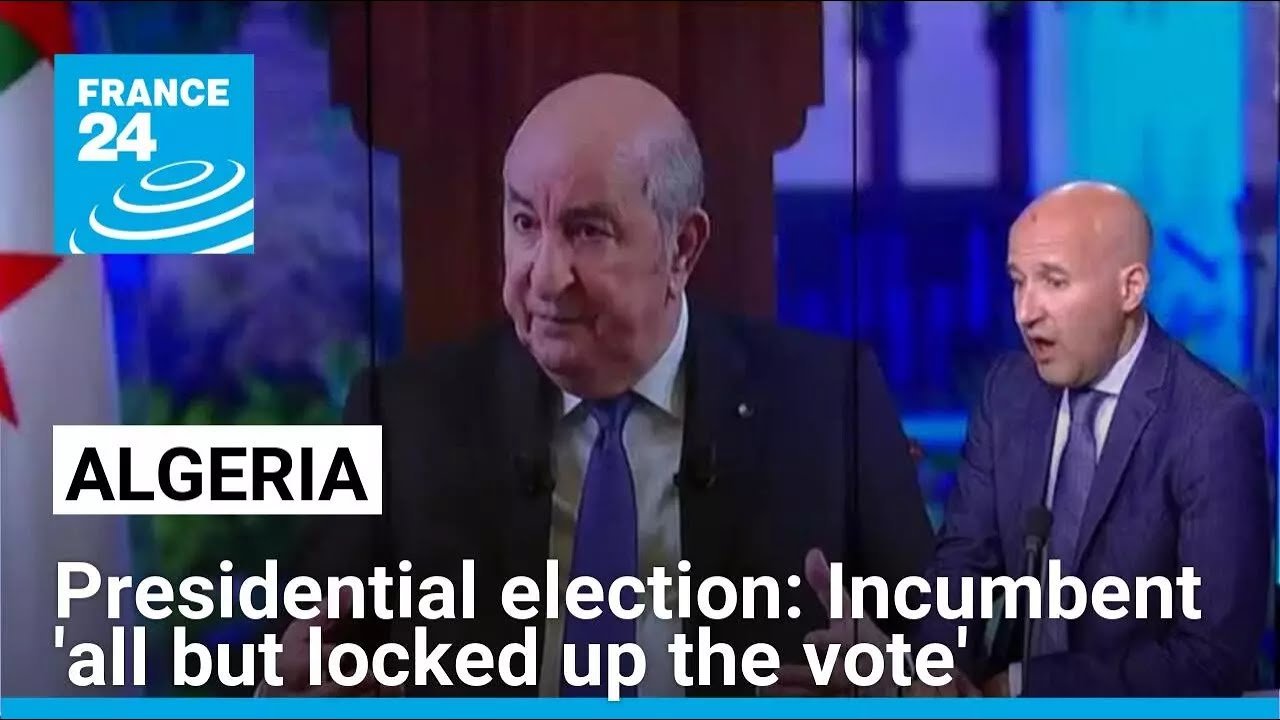In the upcoming Algerian presidential election, the incumbent President Abdelmadjid Tebboune is seen as having a significant advantage, with the election outcome appearing to be a foregone conclusion. Tebboune, who is seeking a second five-year term, has been praised for his economic policies, including rising wages and incomes. However, many Algerians are critical of his leadership, citing a lack of genuine electoral competition and his reliance on a network of political patronage, as well as the country’s continued dependence on fossil fuels. Despite the presence of two other candidates, their chances of posing a real threat are minimal, with the election process criticized for lacking inclusivity and transparency.
- Algerian President Abdelmadjid Tebboune is running for a second term, leveraging his economic record.
- Many Algerians are skeptical of Tebboune’s achievements, pointing to a lack of real electoral competition.
- The election is criticized for its resemblance to elections in countries like Russia and Venezuela, where outcomes often seem predetermined.
- Tebboune’s leadership continues to rely heavily on Algeria’s fossil fuel industry, despite global shifts towards renewable energy sources.
- Opposition is limited, with two candidates allowed to run against Tebboune, but neither is expected to challenge his position seriously.
- Out of 16 candidates, 13 were rejected, including two prominent women who have contested their disqualification.
- The 2019 elections saw massive abstention, with over 60% of the electorate not participating, a trend Tebboune hopes to reverse in this election.
- The government has been accused of persecuting heads of big businesses and staunch defenders of anti-government protesters, further questioning the election’s legitimacy.
France 24 is an international television network and news website owned by the French state.
Official website: https://www.france24.com/en/
Original video here.
This summary has been generated by AI.

Leave a Reply